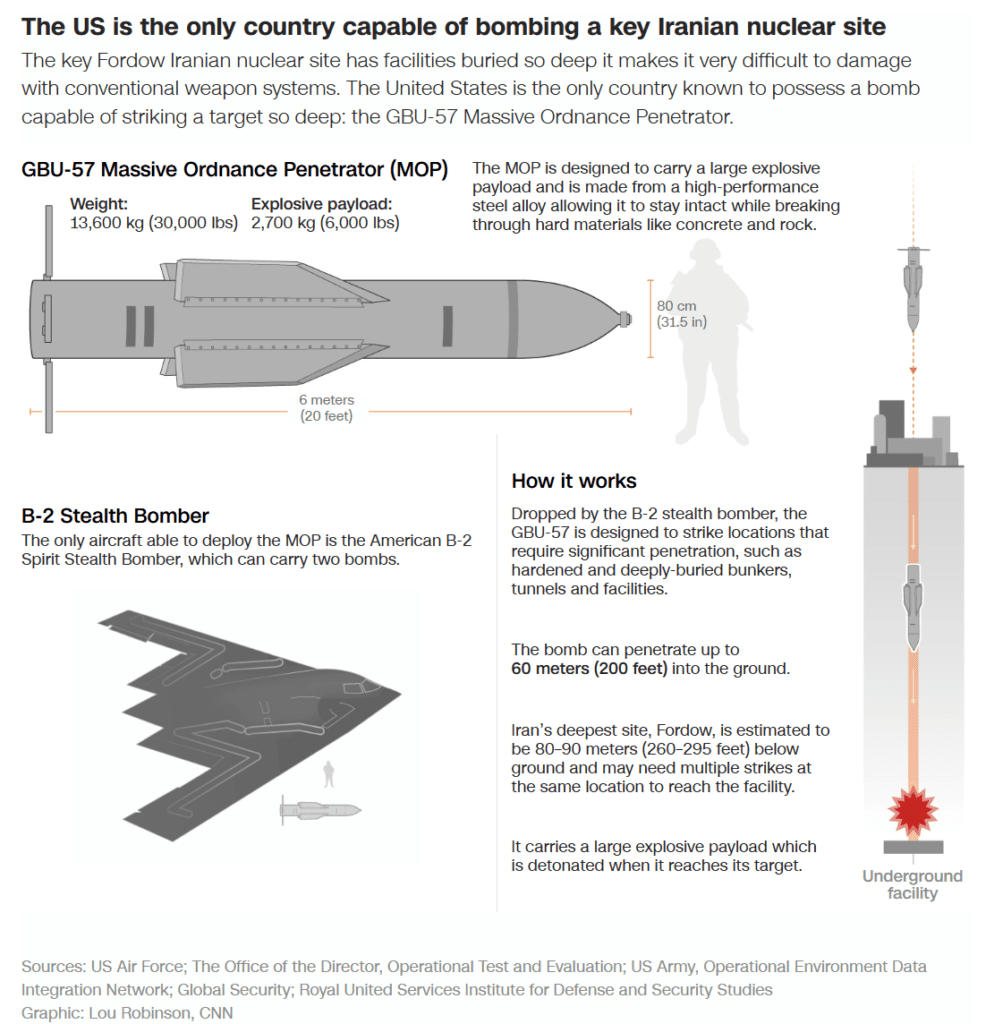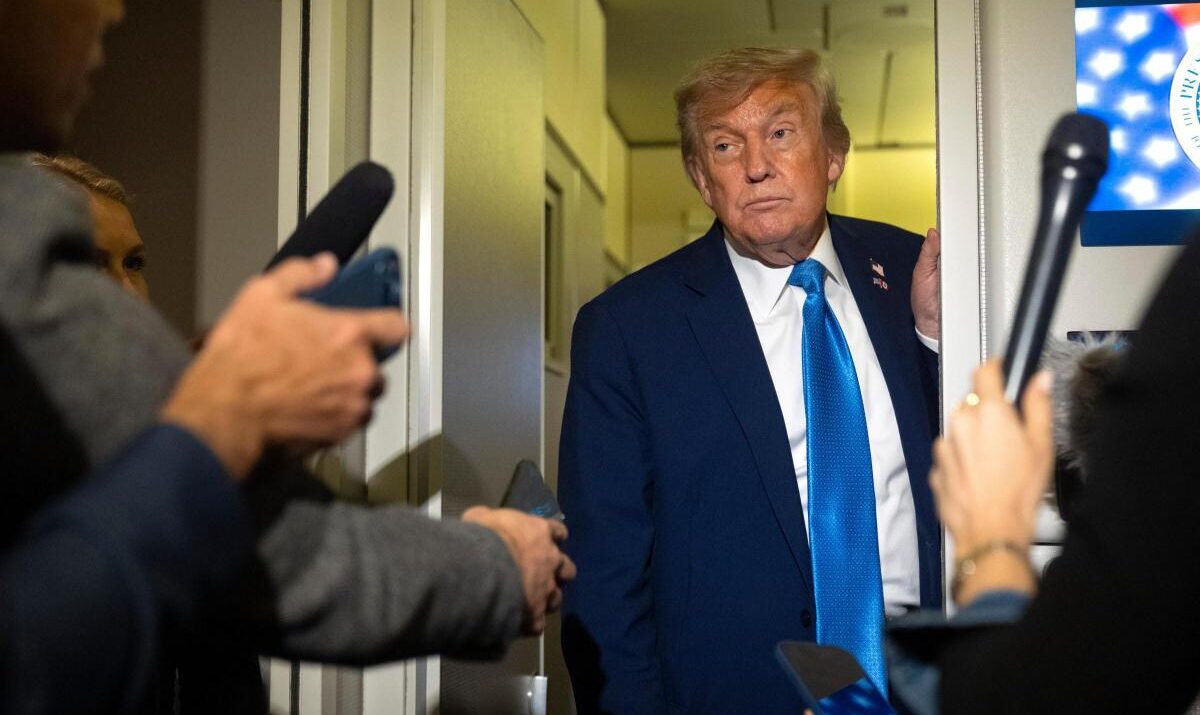Amid an increasingly dangerous standoff between Israel and Iran, former President Donald Trump has said the United States may not need to strike Iran — but refused to rule out military action, stating “maybe it won’t be necessary.” Trump told reporters Friday that Israel cannot destroy Iran’s nuclear facilities on its own, hinting that US “bunker-busting” capabilities may be required.
Meanwhile, European officials are scrambling to keep diplomacy alive. Top diplomats from Germany, France, the UK, and the EU met Iranian Foreign Minister Abbas Araghchi in Geneva on Friday in what one source described as initially “tense” but later “much more positive” discussions. While Iran expressed willingness to return to negotiations, it made clear that talks with the US would only resume if Israel halts its airstrikes.
“There is no room for negotiations until the aggression is stopped,” Araghchi said after the meeting.
Despite the diplomatic push, Israel has shown no interest in de-escalation. Israeli Foreign Minister Gideon Sa’ar dismissed the European initiative outright, calling past diplomatic efforts “a waste of time” and echoing Trump’s demand for “unconditional surrender.”
Key developments:
- Trump’s timeline: Trump said a decision on US involvement would come within two weeks, calling it the “maximum” time. He emphasized he would not deploy ground troops and still sees himself as a peacemaker — “but sometimes, you need toughness to make peace.”
- Iran’s conditions: Iran told EU mediators it won’t talk with the US until Israeli strikes stop. In return, Iran may pause its own retaliatory missile launches. A Western official suggested direct talks could follow if both sides agree to pause strikes.
- Missile exchanges escalate: Israel and Iran continue to trade fire. Over 15 Iranian drones were intercepted by Israel on Friday, while Iranian air defenses were activated over Tabriz. A missile strike on Haifa injured 33 people.
- UN showdown: At the UN Security Council, Israeli and Iranian ambassadors clashed. Israel vowed to keep attacking until Iran’s nuclear program is “dismantled,” while Iran claimed it was exercising its right to self-defense.
- US pressure grows: Congress is demanding clarity. A classified Senate briefing is scheduled next week with Trump’s top national security officials, including Tulsi Gabbard and CIA Director John Ratcliffe.
- European stance: EU foreign policy chief Kaja Kallas warned that “regional escalation benefits no one,” and Britain’s David Lammy said preventing a nuclear Iran must remain the priority.

While Trump signals openness to diplomacy, his language remains laced with veiled threats. “You’re even in danger talking to me right now,” he told reporters Friday, highlighting the precarious nature of the conflict.
Whether the Geneva talks can lead to a pause in hostilities remains uncertain. For now, both Israel and Iran seem determined to continue fighting — while the US watches, weighs, and waits.
Disclosure: This article does not represent investment advice. The content and materials featured on this page are for educational purposes only.
Related:
IMF Warns: European Economy Faces Risk of Stagnation
Why Oil Prices Aren’t Surging Despite the Israel-Iran War
Trump Privately Approved Attack Plans for Iran but Has Withheld Final Order
Iran Refuses to Surrender as Trump Mulls Strike: Tensions Surge in Middle East Conflict
Trump Demands Iran’s ‘Unconditional Surrender,’ Escalates Pressure in Israel-Iran Conflict
US and UK Seal Trade Deal — but Steel Tariffs Unresolved
Trump Exits G7 Early as Leaders Urge Mideast Ceasefire: What the Summit Delivered
OpenAI considers antitrust action against Microsoft amid tensions
What Is Trump’s ‘Revenge Tax’ — and Why It’s Scaring Off Foreign Investors










